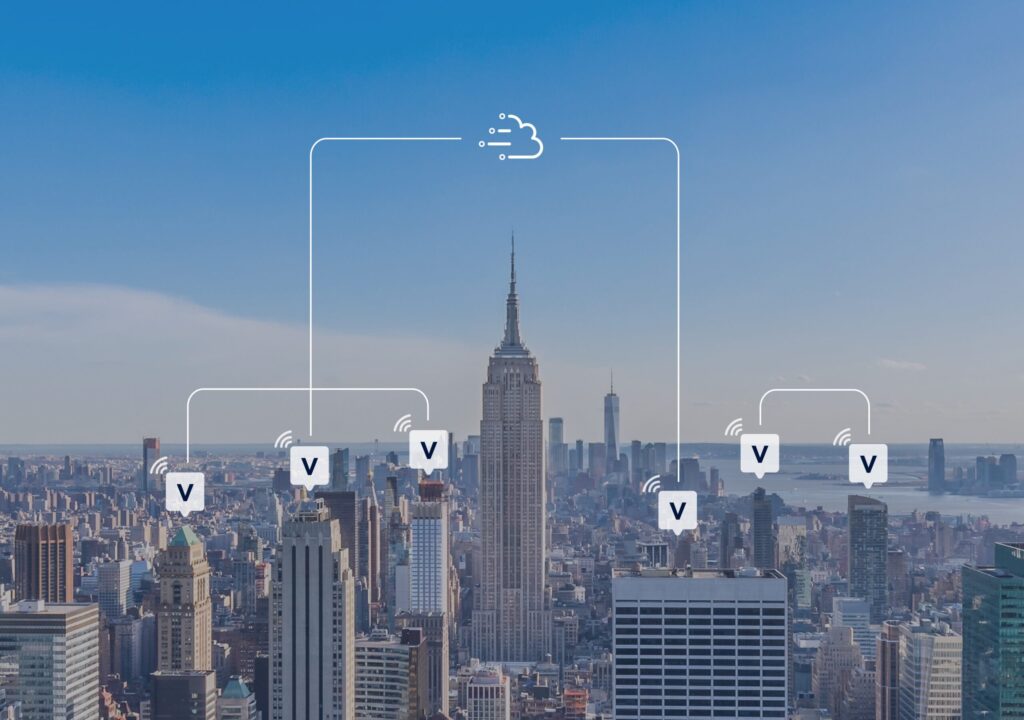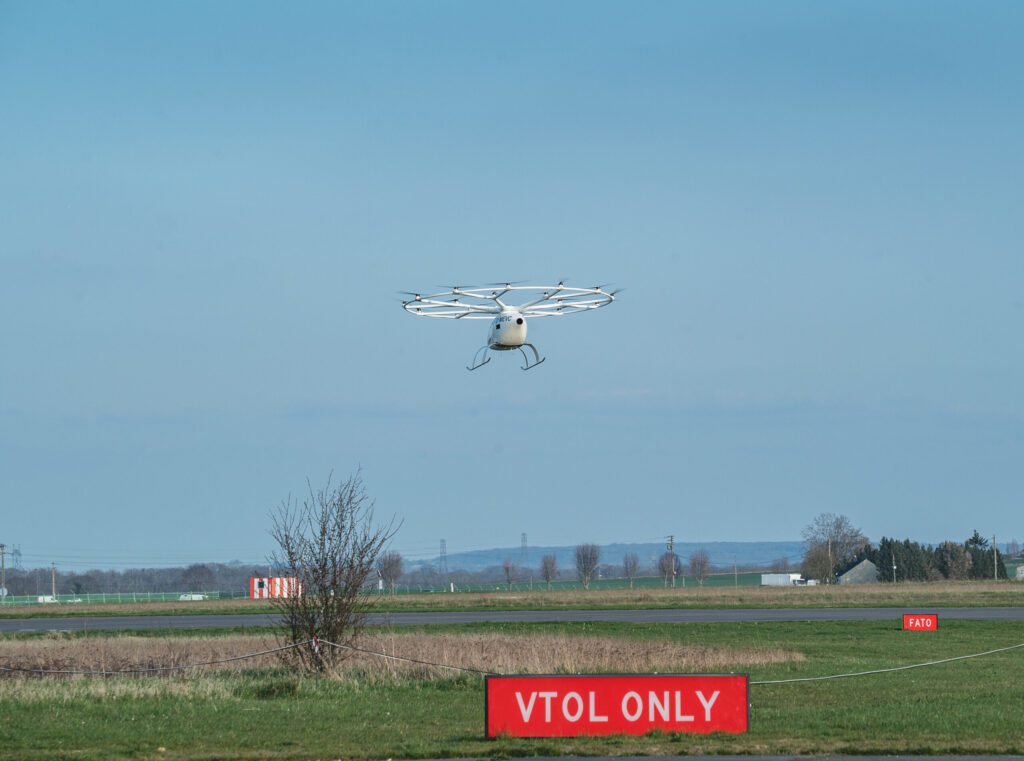Volocopter and Microsoft Collaborate to Develop Aerospace Cloud System


Volocopter and Microsoft are collaborating to develop an aerospace cloud system. Microsoft Azure will be used to enable VoloIQ as Volocopter’s digital platform for its UAM vehicles and ground infrastructure. (Photo, courtesy of Volocopter)
Urban air mobility (UAM) company Volocopter announced this week that they have entered a strategic collaboration with Microsoft, aimed at developing an aerospace cloud system in Microsoft Azure. If successful, Azure will enable Volocopter’s digital platform—VoloIQ—to provide flight and service support for VoloCity, VoloDrone, and VoloConnect, the three electric vertical take-off and landing (eVTOL) aircraft models designed by Volocopter. VoloIQ will also be capable of supporting Volocopter’s vertiports, called VoloPorts, in real time.
Volocopter received design organization approval from the European Union Aviation Safety Agency (EASA) in 2019, and two years later the company received a Production Organization Approval in July 2021, allowing production of its eVTOL aircraft to begin. In September of last year, Volocopter revealed that they will also explore a U.S. launch of their UAM aircraft, facilitated by a new partnership with Los Angeles-based company Urban Movement Labs.
The VoloIQ software will be used as Volocopter’s standard UAM operating system for its vehicles. The team plans to enable VoloIQ for a variety of functions, including monitoring weather conditions; booking and e-commerce; flight planning; vehicle data logging and analysis; commercial scheduling; and operational network planning. The structure of the VoloIQ software will also supply airspace digital twins. Utilizing Microsoft Cloud/Azure, Volocopter will be able to connect and fully integrate these various elements into one set of services, according to the company’s announcement.
Microsoft has collaborated with Volocopter since 2020, when the UAM company partnered with Lufthansa Industry to enable use of the VoloIQ for autonomous vehicles with Microsoft Azure.
One of the priorities in developing the VoloIQ platform, powered by Microsoft Azure, is to make Volocopter’s services both user-friendly and digitally accessible. VoloIQ also offers the potential to optimize management of the VoloPorts, specifically to make this infrastructure more cost-efficient and to lower maintenance requirements.

Pictured above is Volocopter’s full-scale testing prototype, the 2X, performing a flight test at Pontoise airfield in Paris. (Photo courtesy of Volocopter)
Alexander Oelling, Volocopter’s Chief Digital Officer, remarked in the company’s announcement this week on the selection of Microsoft Azure, “Having Microsoft on board as a project partner and investor is proof that the solutions Volocopter creates—like the VoloIQ—are pioneering and hold remarkable market potential.”
Corporate VP of Cloud and AI at Microsoft, Uli Homann, shared that their team looks forward to collaborating with Volocopter and building the foundation for a commercial model of the aerospace cloud system. “From the newest technologies to regulation, creating solutions to seamlessly address the cloud computing requirements for supporting continued advancements in aviation is a complex endeavor,” Homann stated. “We certainly see the potential a secure, robust, and efficient cloud platform could offer aerospace and urban air mobility operators.”
Two months ago, Volocopter accomplished a significant milestone, becoming the first developer of eVTOL aircraft to conduct remotely piloted and crewed test flights in France. Volocopter’s 2X, the full-scale testing prototype, performed the crewed test flights on March 21 in Paris. The team evaluated the noise emissions of their aircraft and collected data that will inform the launch of UAM services in the region.
The post Volocopter and Microsoft Collaborate to Develop Aerospace Cloud System appeared first on Aviation Today.
—————
Boost Internet Speed–
Free Business Hosting–
Free Email Account–
Dropcatch–
Free Secure Email–
Secure Email–
Cheap VOIP Calls–
Free Hosting–
Boost Inflight Wifi–
Premium Domains–
Free Domains





